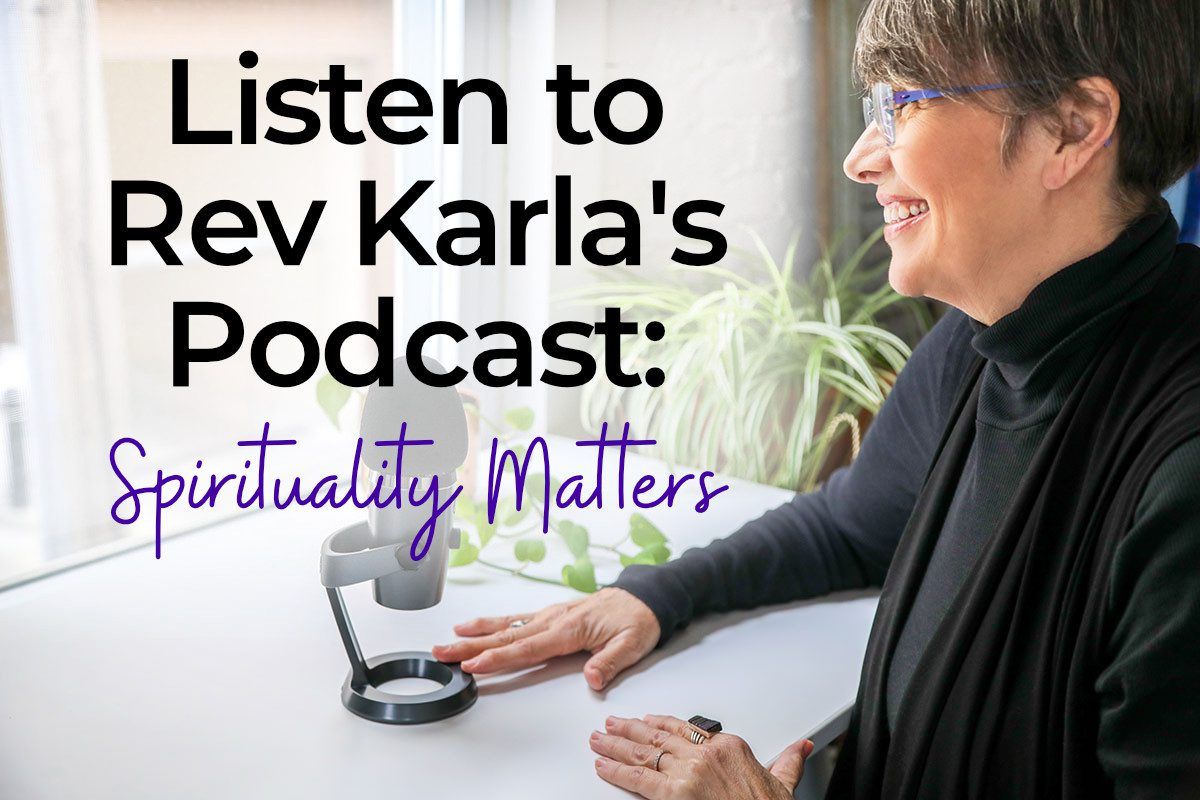Healing from Radicalized Christianity & Religious Trauma
Recently, I was attacked in my video comments. It didn’t go well for the commenter and I’m not at all sorry. Those sentences stand on their own as a complete thought, but the “it didn’t go well…” bridge in the middle carries a lesson. Let’s dive into a story that has relevance for our teaching theme this week of healing from radicalized Christianity.
Being attacked is nothing new. In fact, I’ve come to expect some level of negativity, especially from ultra-conservative and evangelical Christians. Regardless of how often I remind our followers that I don’t engage those who disagree with me by commenting on their videos or attempting to change their minds, I’m seen as a threat to their reality and they show up enmasse to flood the comment section with vitriol.
Most of them get deleted and when particularly toxic, the commenter gets blocked. If handled irresponsibly, negative comments can become a distraction to our mission of helping people recover from religious trauma and guiding them on a spiritual but not religious path.
Yet sometimes a comment will be so outlandish or toxic that it deserves to be noted for what it is, who’s doing it, and why it’s important to call it out.
What is it?
Toxic theology.
Who is doing it?
Radicalized Christians.
Why call it out?
It’s a teaching moment.
Circling back to who we are serving -- people who desire to recover from religious trauma -- it becomes clear why these types of comments must be addressed in a way that educates and empowers our followers, lest they begin to shrink away from their capacity to heal.
That I believe, is the intent behind those comments in the first place. The pushback to my teachings originates from fear -- the fear of losing control over the religious narrative through which our education, politics and personal values here in America flow. The reality is, however, this religious narrative has been changing for some time now. Christianity’s influence within America has been decreasing for years, while the number of those who identify as spiritual but not religious continues to rise.
Fear is used as an indoctrination tool to control the masses. Understanding this allows us to see how fear-based theology lies behind the behavior of online attackers.
They are simply parroting what they’ve been taught. When all you hear from the pulpit is the damnation of others who aren’t beside you in the pews, you begin to believe it. Talking points include:
1) Tossing out Bible verses. Honestly, when has this ever worked? Cherry picking Bible verses is such a common tactic, it lost its punch decades ago. It’s amazing to me that someone can toss out a Bible verse to judge others while ignoring all of the verses about judging others.
2) Condemning me and/or our followers to hell: They believe they have the power to do so. They don’t. For this to have any impact, one would have to believe the literalists’ view of hell being a physical place. It isn’t. It does, however, exist as a space inside one’s heart and mind when you carry hate for others -- such as those who are indoctrinated into fear-based theology.
3) Questioning my authority to teach: This one is my favorite. Are we still having this debate in 2021? Apparently so, because Catholicism and a wide swath of conservative Christian churches still do not allow women to be priests or ministers. This is primarily based on the apostle Paul’s teachings about his not allowing women to speak in church nor teach men. Paul wrote while living in a deeply patriarchal society so this was the norm at the time. Yet, as the world has evolved and we no longer toss children into volcanoes or slaughter bulls on an altar to appease and worship God, women’s rights have also evolved - except in religions where women are subjugated to secondary roles.
4) Hyper-focusing on dehumanizing LGBTQIA humans: This obsession with the persecution of LGBTQIA people has confounded me for years. What I’ve come to realize is that radicalized, fear-based teachings refuse to release their condemnation because to do so would indicate a strong shift from conservative evangelical values. It would be seen as a flaw in their belief system that would lessen their influence over the indoctrinated. This ideology relies on a static interpretation of scripture and a literal view of everything in the Bible to survive. Therefore, they cherry pick, condemn people to hell for anything different, mock women who are called to ministry and dehumanize entire populations because of their sexual or gender identities.
Let me be clear, we don’t intensely focus on haters and trolls. We are however, committed to a standard of integrity that includes strong boundaries for engagement on our platforms. When those boundaries are breached, we respond with strong words and intentional, candid language to assure our community that this level of vitriol will not be tolerated. In other words, the message to our followers is, “we’ve got this, you’re safe, and they’re wrong.”
I call our response “pushback with passion.” If there is one gift from my ancestors that I value above all else, it is the ability to see through the hatred hurled at you and find the hidden lesson. My grandmothers were masters of it, and I gobbled up their wisdom as a young child. As they sat around the table telling life stories and how they responded to haters -- not a term in the 60’s but you get my point -- I often found myself captivated by these strong women who had no idea they were gifting me with this foundational knowledge of, well, what’s the best way to say it....
seeing through the bull****.
“Bull****,” as in religious judgement, hatred, condemnation, dehumanization, persecution -- all that is wrapped in toxic theology. The end result is always trauma. When people finally break free of religious bull****, their spirits are deeply broken.
And that is where we return to the bridge of “it didn’t go well for the commenter…”
When a particularly abhorrent comment arrives, within minutes I screen grab it, see it for what it truly is -- a teaching moment. Doing so dismantles the commenter’s intention of causing harm and empowers our followers to find the weakness behind the action.
Admittedly, I’ve had moments of regret when commenters attempt to delete their words knowing a response video will follow and be viewed by thousands. Oftentimes, they will also hide their profile to limit the fall-out.
But it’s only a moment. After all, we are responsible for our actions and wielding judgement wrapped in hateful words will indeed have consequences, no matter how religiously superior we consider ourselves to be. Extremist views and toxic theology should be kept on their own pages if they don’t want a starring role in my next video.
“It didn’t go well for the commenter” essentially means it went well for our teaching platform. Those seeking to heal witnessed the dismantling of toxic theology and are assured that they are seen and loved.
In the end, that is all that matters. We will continue to use everything within our power to ensure we hold this space for those who are in need.
Thank you, grandmothers.
*Lest there be an assumption that our comments are primarily negative, the vast majority are positive, supportive, encouraging, uplifting and loving. This affirms that we are reaching those we are called to serve.
Blessed be.


